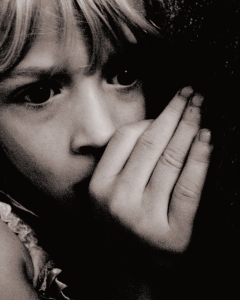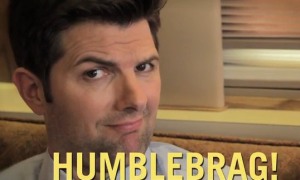Criticism, Conflict, and Beauty in the Midst of Pain (by Michael Palmer)
Michael Palmer is one of the many great friends I’ve made on Twitter. If you’ve never had a chance to check out MichaelPalmer.com, you should. It’s pretty awesome. I was teasing him yesterday because his bio highlighted the fact that he loves coffee (which I constantly see in online bios). In response, he changed it being a lover of food. Totally awesome! I love him, and hope you do too.
 While Robin Williams has always been an actor I admire for his work in Dead Poets Society, Patch Adams, Mrs. Doubtfire, Good Will Hunting, and What Dreams May Come, I recently discovered another of his classics: Good Morning, Vietnam.
While Robin Williams has always been an actor I admire for his work in Dead Poets Society, Patch Adams, Mrs. Doubtfire, Good Will Hunting, and What Dreams May Come, I recently discovered another of his classics: Good Morning, Vietnam.
For those who haven’t seen Good Morning, Vietnam, this film is based around a popular radio personality, Adrian Cronauer (played by Williams), as he’s brought into the Vietnam conflict in order to boost troop morale. Irreverant and unorthodox in his style, Cronauer soon makes enemies with his superiors (Hauk and Dickerson), and conflict over his creative style quickly follows.
We watch as a disapproving (and deeply insecure) Hauk consistently clashes with, and criticizes Cronauer because of his comedy and his delivery. The underlying theme of the conflict being Hauk’s belief that he alone knows what true comedy is, which in turn leads Hauk to believe Cronauer is bastardizing the art of comedy.
Wrapped up in his quest for approval, respect, and unflinching defense of comedy, Hauk attempts at all costs to silence the popular Cronauer by any means necessary.
Criticism is inevitable
Whether we take on a new project at work, accept a new leadership position, or take on an artistic or creative risk, the very act of standing out opens us up to criticism; criticism which often feels harsh and/or unfair.
This criticism can create within us doubt and death where freedom and boldness once grew. In these moments we are tempted to give up. However, criticism, be it fair or unfair, is a opportunity for personal and creative growth.
Growth we all need.
It starts with us
We have all been the critic, haven’t we? Be it criticism of a movie, song, album, painting, essay, book, article or (Fill in the blank here), we have all been the one harshly projecting our own wisdom and truth into another’s art and experience.
Recently, I visited a local modern art gallery, and as I walked through the rows of paintings, I caught myself saying things like, “It’s not art if I can do it!” or “Why would anyone spend money on this?”
My criticism dismissive of the hours and effort which went into each piece of art.
On the flip side, I remember when I published my first essay in a magazine. Like any person who creates, this essay wasn’t just a collection of words on paper- it was a personal confession. This essay was a living, breathing part of me.
I remember the hurt I felt as people criticized my handling of the topic, telling me I was wrong, cold and accused me of hypocrisy.
Criticism reminds us of the impact our own words have on others. We’re reminded, what feels like plain spoken truth to us, can often be received as harsh and cold to others. It was through these painful moments I was drawn back to the ways I unfairly criticized the work of others.
When we are criticized, especially when harshly or unfairly so, it reminds us to offer future words of critique gently and with relentless kindness. Without a doubt, in the creative life there is a need for critique and correction, however we must remember to do so with love (read: patience, kindness, humility, selfless, calmness, and with unwavering support).
When we experience the pain of criticism, it forces us to re-evaluate the ways in which we criticize. Empathy overcomes the need to be correct.
Hurting people hurt people
While not easy to see in the moment, when we are hurt by others, we forget the offending party is probably operating within their own pain. They criticize another’s art because they are ashamed of their own. They criticize another’s words because someone silenced theirs. They criticize another’s accomplishments because their ability was never publicly accepted or acknowledged.
In their brokenness, they repeat the cycle of destruction.
As a young pastor in my first staff assignment, I was asked to lead a “20-somethings” small group. In my youthful naivety, I decided that since it was an election year (2008), a discussion about the relationship between politics and the church would be appropriate for this class. (I mean, how could a religious discussion involving politics ever go wrong??)
It took exactly one session for me to be the recipient of a verbal flogging by a visitor. I was accused of many things (none of which were good, though, some of which were unfortunately true), and was told that, because of pastors like me, this person no longer attended church.
I remember, in that moment, my youthful, naivety about ministry and my personal ability came crashing down around me.
However, in the minutes, days and months that followed, I slowly learned what it means to forgive when I am the one who bears the brunt of others pain. I learned to hear the truth behind the words, while ignoring the vitriol. To take it, learn from it, and help lead the critic towards healing in their own wounds.
May criticism lead us towards beauty
Am I perfect in this? Not even close. I still unfairly criticize, and from my pain I still tear others down. However, I deeply believe that it’s a sacred task to fight this spiral of destruction. I must refuse to let my own pain dictate how I respond to the creativity of others.
As people who create, may we refuse to throw stones. May we rebel against destruction, and instead invite others into our pain. Instead, as we journey through this pain, may we offer space for life and beauty to form once more.
* * * * *
 BIO:Michael Palmer is a husband, father, pastor and occasional writer. He is a Cardinals fan living in Giants country, and a lover of cultures and food.You can find him on Twitter and Facebook, and he writes at michaelrpalmer.com.
BIO:Michael Palmer is a husband, father, pastor and occasional writer. He is a Cardinals fan living in Giants country, and a lover of cultures and food.You can find him on Twitter and Facebook, and he writes at michaelrpalmer.com.
























